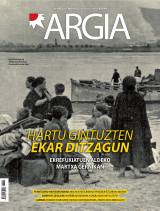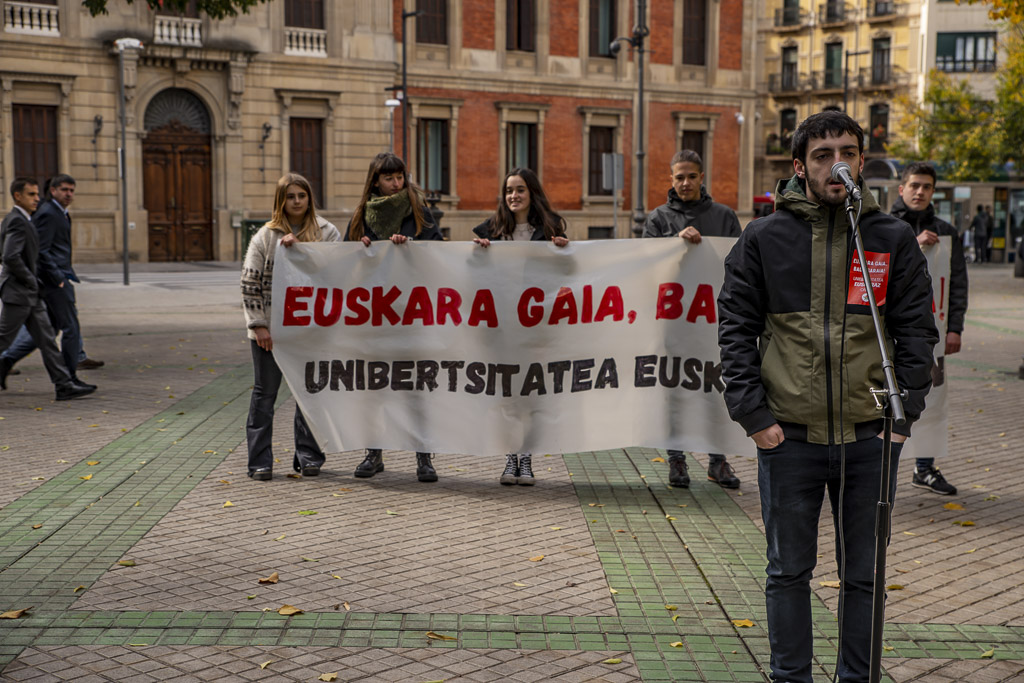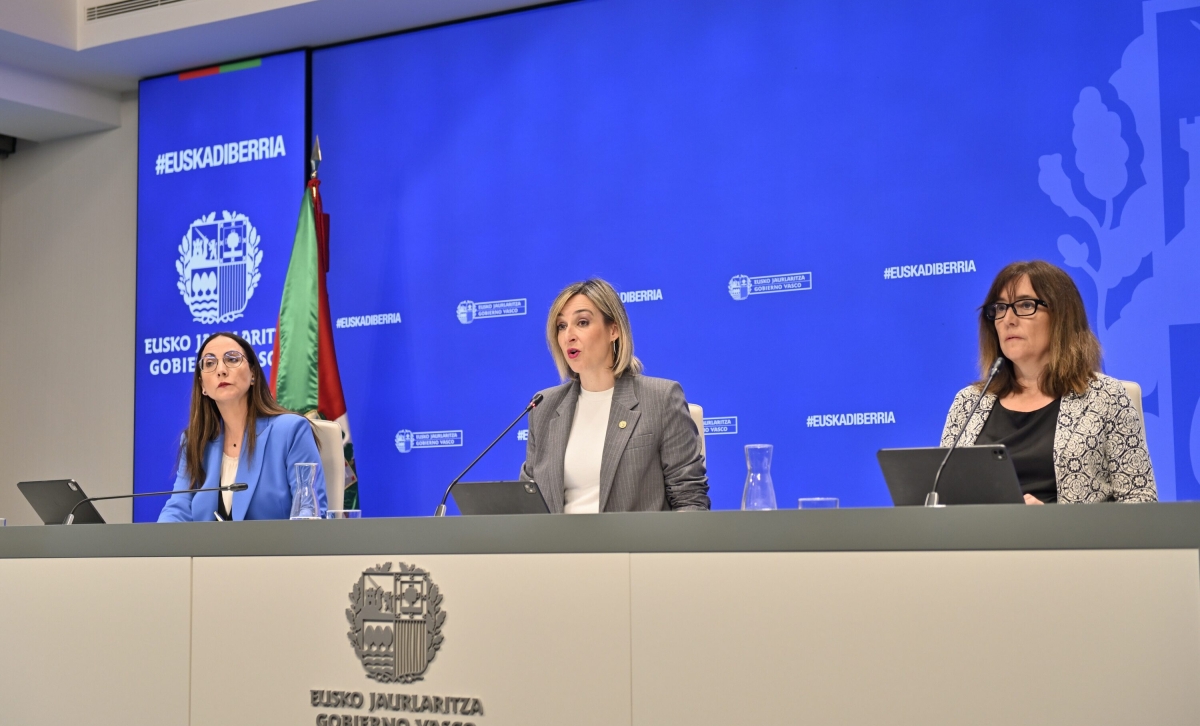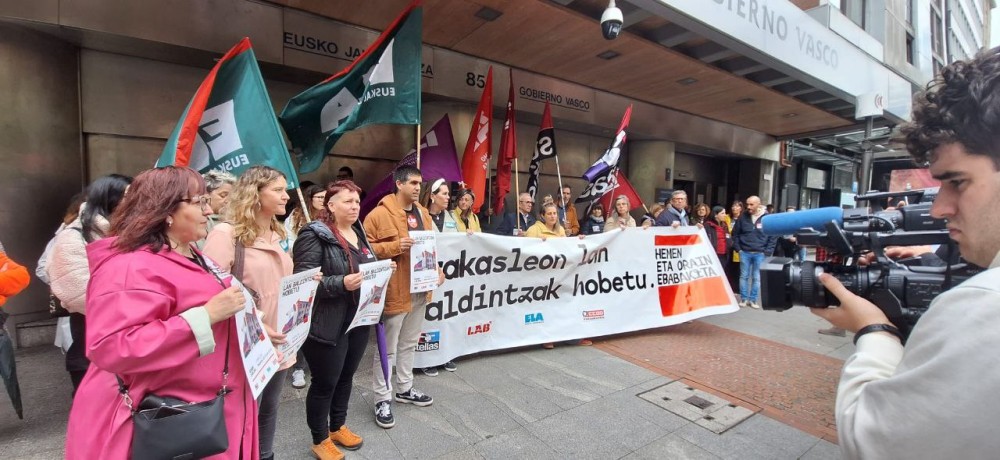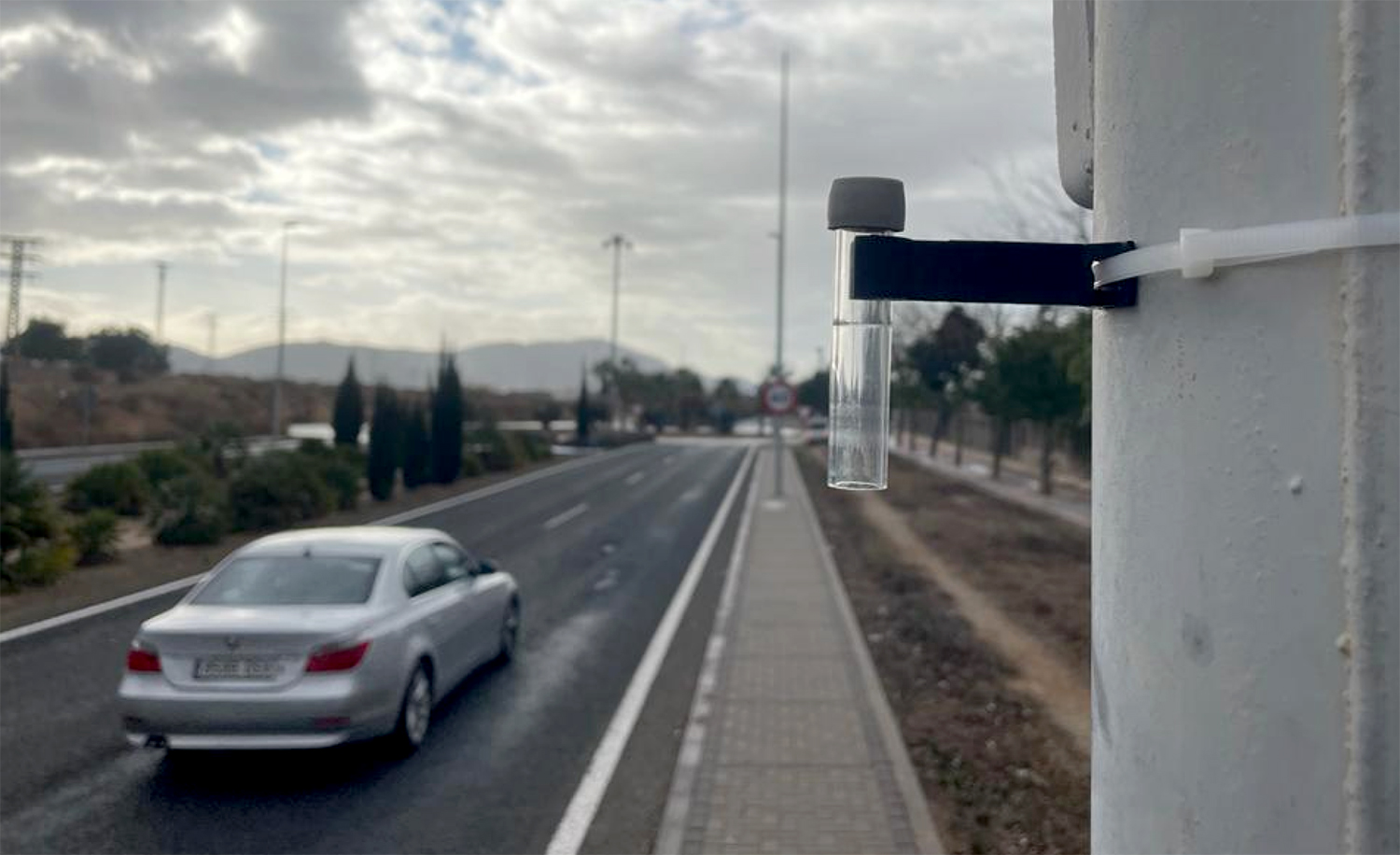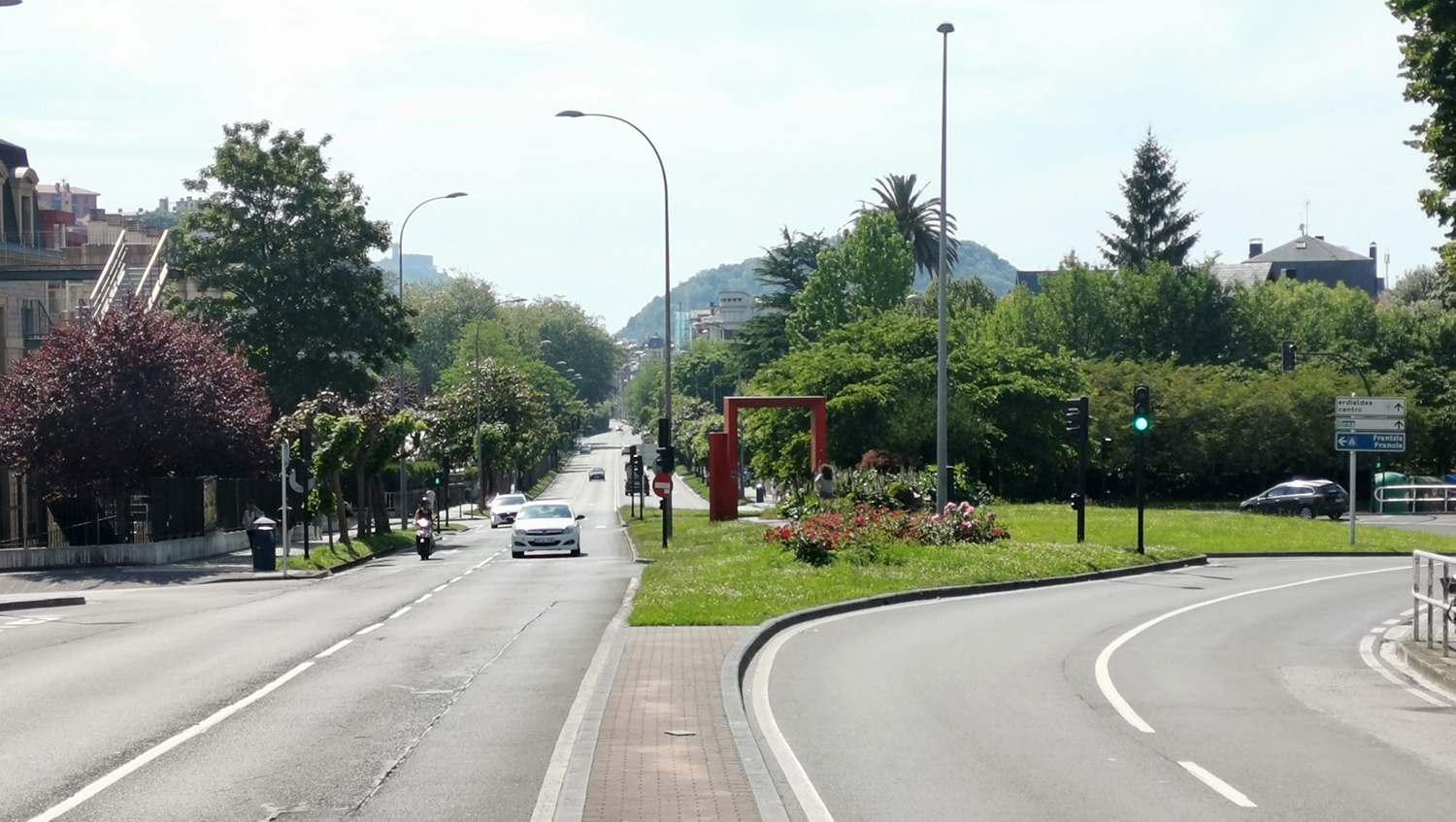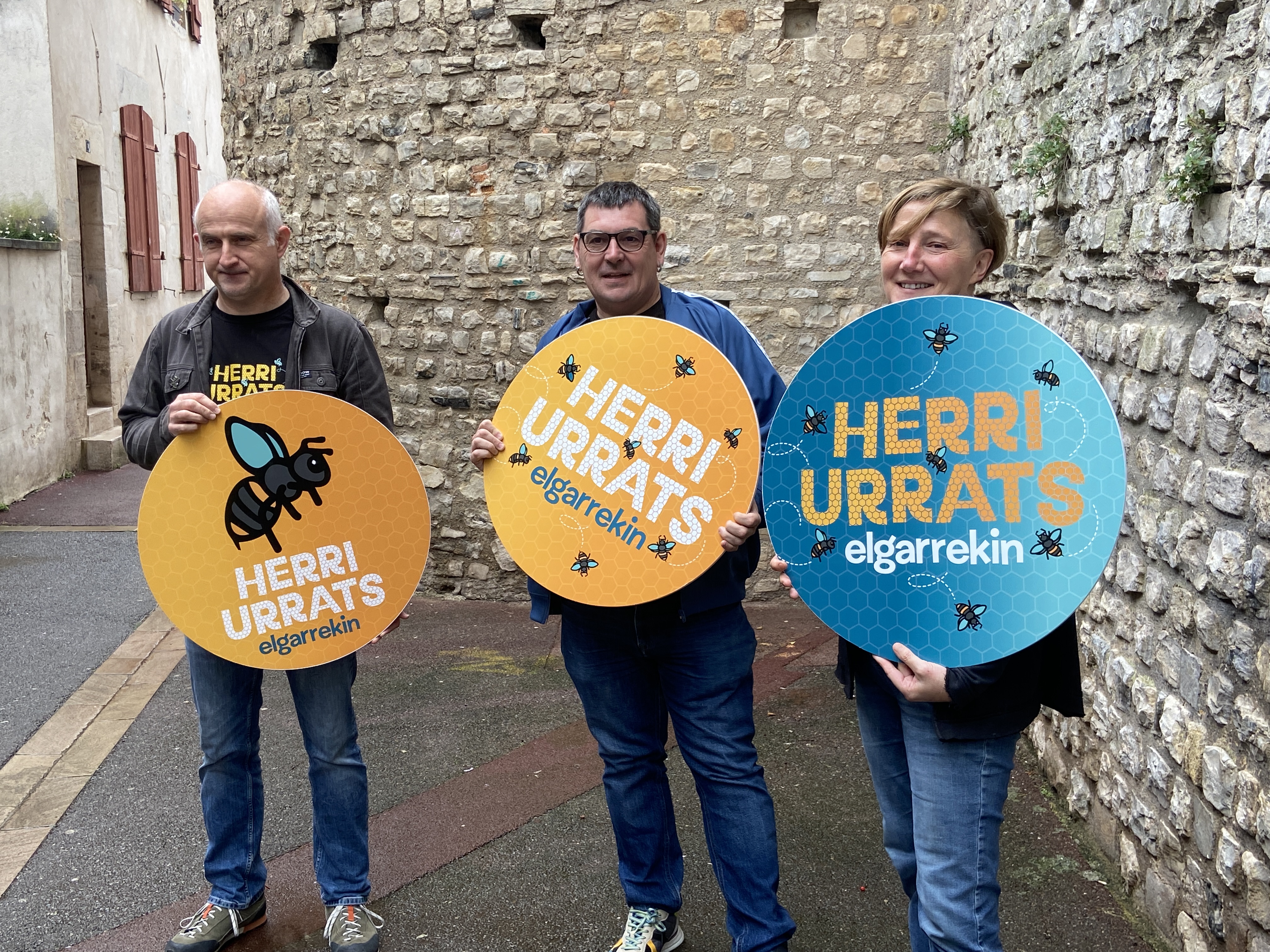To empower the student, give him wings
- Because not all of us learn at the same pace and under the same conditions, students with difficulties in ordinary classrooms have the opportunity to advance in a different dynamic in the Curricular Diversification classroom. The Ensure Txoriak project is a successful example of this dynamic, ideal for developing lots of skills and increasing motivation, curiosity and self-esteem.

Today they are the protagonists: The fifteen students aged 16-17 who are in the Curricular Diversification class of the Christian School El Pilar de Irun. A little nervous, they've taken the trouble and they've gone to the class of 9-10 year-olds. The topic is presented and asked immediately: “How many species of birds do you know?” We have seen many hands raised: dove, eagle, khaki, golondrina… “Is the duck a bird?” one of the children wants to know. The teenagers have then hung a video showing the dining rooms that they have built for the birds, how they have placed them in the school garden and how the birds have approached them in search of studs. The carbonero, the gorrion, the txantxangorri… have been trapped by the Go-Pro camera. The characteristics of the species in the area, accompanied by images of the children, have also been explained. “But if the sorbonne never lands, how does it lay the eggs?” the 9-year-old wants to know. Boys and girls have competed for pairs in the game that adolescents have prepared by computer: it is a game of questions and answers about birds that have been helped by the most mature students. Finally, the time has come to get down to the garden. The Society of Sciences Aranzadi has set up a network early in the morning and caught many birds, in total eleven (the students’ canteens have something to do with the attraction of birds). In addition to weighing, measuring and anchoring birds in the legs, the residents of Aranzadi have clarified the students’ questions. The members of the association have also been surprised to see the bird and identify it immediately. In fact, they have already become almost experts on the subject.
In the end, one of the students has approached with a new proposal and a new challenge to the biologist, project promoter and professor of El Pilar, Iñaki Sanz. “It’s a great thing that this child comes to the teacher and not that he has to go to him,” Sanz confesses. In short, the important thing is to generate interest and curiosity, because from that interest they will not forget what they have learned and that curiosity is the engine for everything else.” The result of this presentation day goes beyond the academic concepts: the effort that has required them to speak in public, the way to manage the relationship with younger students, responsibility, trust, challenge and the feeling of success… “There are many experiences and feelings; in most cases, feelings that have not been very common before” [see video of the presentation].
Starting from the awareness that they are capable of
The Curricular Diversification Team is a resource offered to young people with learning difficulties to obtain the ESO title, which lasts two courses. Normally, the obstacle is not the lack of ability, but they do not want or habit to work, or they feel lost, that they do not yet adapt to the language, or that they bring other burdens to school, that they lack a maturity point… Working differently and offering the opportunity to work a couple of years more at school, the teachers of that group, Naroa Martínez and Iñaki Olazabcia have explained to us.
Iñaki Sanz, Professor: “It’s the students who have noticed that they don’t come, the ones who have been accumulating bad grades. But you break that dynamic and you start to see better outcomes, and valuing yourself greatly reduces stress.”
“They are students who have so far felt that they do not arrive, that have been accumulating bad grades within a certain evaluation model and surpassing the courses to tears, frustrating. But they break that dynamic and they're no longer sitting six hours on the board, they're doing projects, workshops and crafts, they're working on the basic objectives in a different way -- not so closely linked to the normal curriculum -- and they're starting to see better results, they're realizing they're capable. Self-reliance greatly reduces stress and gains in maturity, responsibility, autonomy,” says Sanz. Olazabal has stressed that the balance is very well maintained: “We don’t drop the level too much, because they realize it right away and because we want to face challenges that also require effort. They also do a few hours mixed with the ordinary group, so that they internalize that they are the same as others, not isolated or special.” They say that it is an advantage to have a small group and dedicate themselves to only two professors, because it facilitates mutual knowledge, closeness and trust, a more personalized and fundamental relationship: respecting moments, listening if they have any problems, taking time to talk to them…
The result is clear: only two exceptional cases of young people who have studied in the El Pilar Curricular Diversification Group in these ten years have not managed to obtain the title.
Martin San Gregorio, Eneko De La Fuente, students:
“In
the presentation we have seen the children very comfortable and everything has gone very well. The most remarkable
thing is that we have come
together and together
we have pushed the project forward.”
What emerged as a game became a stable project.
An interesting example of the projects that they deal with is Segment Txoriak, which unites nature and education. The initiative was born six years ago with the objective of taking advantage of the large landscaped area of the school. They placed nest boxes and the birds began to approach; the birds began to identify, decided that they were going to be recorded… and what emerged as a game has become a stable project. They have a developed didactic unit, but each year they introduce novelties, pulling out the students' proposals: this year, for example, they have created canteens that automatically and not manually renew the omen, and plastic ones have not built them with natural materials. Another activity is to design a itinerary to cross the garden with children and/or organize exits with binoculars to detect birds in the area. They've also done puzzles and games related to birds and they're looking forward to the youngest coming to play. “When they see that what they do is going to be meaningful and useful, they immediately address the challenge, the little ones in the head.” Through actions, the project works in various branches: biology, technology, informatics, languages, oral and written communication… and, as has already been mentioned, learning that is not academic content.
In Irun urban with more than 60,000 inhabitants, the teachers have highlighted that the center El Pilar, located in the center of the city, is a real treasure to have a garden and a green space, see how suddenly it is filled with birds from nothing, and that the students can live and internalize that wealth without having to resort to books. During these years, the teachers themselves have brought great surprises; in the garden, 18 species of birds have been found that were not expected in such an urban environment.
It's a treasure that the school has a garden in the middle, that it sees how suddenly it gets filled with birds out of nowhere, that without having to resort to books, it highlights the diversity that they have so close to home, that they live and internalize that wealth.
The students have had the same thing: “We thought that here we would only find pigeons, gorrions and some other species, and in the end they have been much more,” Martin San Gregorio and Eneko De La Fuente told us. They say that it is an initiative that moves away from the usual classes, that has more interaction, more dynamic… and that they are happy with the day of the presentation: “We have seen the children at ease and everything has gone very well.” We asked them what they would stand out from the project. “Our friendship, that we have united and that we have all together pushed the project forward.” And when the forces come together, great things can be achieved.
.jpg)
The Department of Education reported on diagnostic evaluations in February: He talked about the mid-stage of 2023 and the end-stage of 2024. Since the disastrous results would show that we have a structural problem, the department decided to comply with the procedure (publish... [+]
I found the old news on the LIGHT ephemeris channel: On April 23, 1918, Irish workers went on a general strike in I. Against forced recruitment for World War II. Thanks to the response of the workers and independence supporters, Britain was forced to retreat.
We don’t have to... [+]









